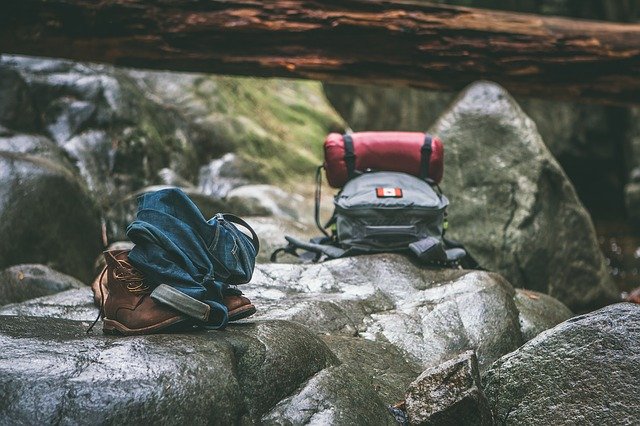Why Do We Love Walking?

If you ask random people if they would like to go for a walk or hike with you, you will likely get many different answers. Some may ask you first for the reason or the destination. Others might ask you why you want to walk if you can take a car. After all, that is usually faster and doesn’t take much physical exercise. But some people love walking for the activity that it is.
Why do some people like walking and why do others not? There are many reasons. This blog explores some in a historical context.
Because We Had to
Our legs were the first modes of transport and they remained so for a long time. Many of our ancestors had to use their legs to get from one place to the next. Maybe they wanted to visit family or friends. Or they needed to move to a new area because the old one did not provide what they needed. Foraging and hunting were activities that were done mainly on foot. Throughout history, many have had to flee because of threats from animals, natural disasters, and even other humans.
Pilgrimaging
Another activity that was done on foot was pilgrimaging. Sometimes this was done as a form of penance that was imposed by religious institutions. On the other hand, some went on pilgrimages to show devotion. During the Middle Ages, there were crusades. Large groups trekked from the northern parts of Europe to Jerusalem in Israel. That was a journey that would have taken months. During this period, they must have had much time to think and converse with their traveling companions. Likely, their conversations did not center around everyday matters but rather about their devotion to their cause.
Promenading and Strolling
This involves a specific kind of walking. Promenading was a privilege of the upper class and got more and more popular as more could afford it. This kind of walking, of course, does not involve long distances and is usually done in an urban environment. Many cities, including the ones with a historical layout, have an avenue where people still like to go to be seen by others. It is an important part of social life around the world. People like to dress up and gallivant up and down and enjoy the cityscape, majestic trees, or the seaside.
Health
During the second part of the twentieth century, the interest in healthy living increased in the western world. People became more concerned with their food intake and more willing to invest in exercising. Walking, jogging, and running are traditionally part of the exercise repertoire.
So Why Do We Walk in the 21st Century?
You may wonder why we have been talking about all these things. After all, we don’t need to run away from wars or hunt animals and neither do we go on pilgrimages. Yet, each example illustrates a reason why we walk and hike.
For example, many people do it because they are running away from something. They want to escape hectic city life or a demanding job. The hiking environment gives them the peace and quiet that they need.
Of course, the action of walking has many benefits too. According to some studies, walking releases endorphins, which are natural brain chemicals that relieve pain and stimulate relaxation. No wonder many walk to get out of a stressful situation!
Other recognized health benefits include:
- Reduces the risk of heart disease
- Reduces the risk of having a stroke
- Improves the body’s production of insulin and thus lowers the risk of diabetes
- Prevents osteoporosis
- Builds stamina, strength, and flexibility
- Burns calories to help lower and maintain body weight
- Improves sleeping patterns and mental functioning
- Counteracts depression
The list above shows the many health benefits, both physically and mentally. But let’s go back to the pilgrims. They had a very clear goal with their walks. But the time they spent was not wasted either. It helped them to reflect on the many other important things in life. During their trips, they meditated on their final destination, their relationship with God, and other moral and theological questions. If they traveled in a group, they used the opportunity to talk about and discuss these topics with fellow travelers.
While hiking you may not necessarily talk or think about the things these pilgrims did. But walking somehow allows us to get in touch with our inner self. We have a chance to think about our life, our friends, and whatever else is important. The tranquil hiking environment helps clear our minds.
When we are engaged in the activity with others, we can talk to them and improve our relationship with them. They may in turn give us new insights.
In the section above you also read about promenading. Now, hiking and promenading and strolling are two entirely different things. But what they have in common is that they are both part of social life to some extent. Hikers dress up in characteristic gear, they recognize each other, and they may feel that they are part of a special kind of people. Some have forged lifelong friendships with other hikers they met along the way.

Conclusion
Hiking is more than the action of our legs to get from one point to the next. It improves our health, both physically and mentally. For many, it is part of their social life and their escape from it!